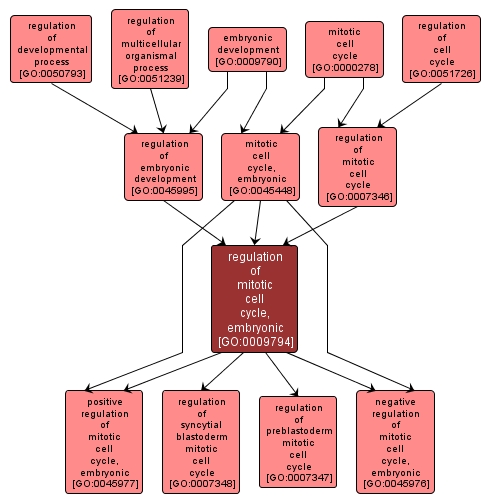GO TERM SUMMARY
|
| Name: |
regulation of mitotic cell cycle, embryonic |
| Acc: |
GO:0009794 |
| Aspect: |
Biological Process |
| Desc: |
Any process that modulates the frequency, rate or extent of replication and segregation of genetic material in the embryo. |
Synonyms:
- embryonic mitotic cell cycle control
- modulation of embryonic mitotic cell cycle progression
- control of embryonic mitotic cell cycle progression
- embryonic mitotic cell cycle regulation
- regulation of progression through embryonic mitotic cell cycle
- embryonic mitotic cell cycle modulation
- regulation of embryonic mitotic cell cycle
- regulation of embryonic mitotic cell cycle progression
- embryonic mitotic cell cycle regulator
|
|

|
INTERACTIVE GO GRAPH
|














